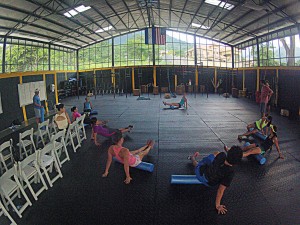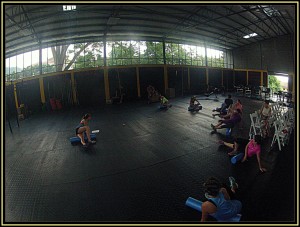 When considering hiring a running coach, there are a few thing you should expect of that coach, and a few things your coach will expect from you. To help you on your running journey, I am outlining 5 things you should expect from your coach, and 5 things your coach should expect from you. Every coach is different, but I think for your running season to be a success, it’s a good idea to understand what you are getting into and what you should expect from your coach.
When considering hiring a running coach, there are a few thing you should expect of that coach, and a few things your coach will expect from you. To help you on your running journey, I am outlining 5 things you should expect from your coach, and 5 things your coach should expect from you. Every coach is different, but I think for your running season to be a success, it’s a good idea to understand what you are getting into and what you should expect from your coach.
5 Things You Should Expect from Your Coach:
- A clear training plan. This plan should be built for you and your schedule, goals, time, etc. The plan should be easy to understand and follow. If there are terms and paces you do not understand, your coach should be educating you along the way. There should be a purpose for every run, and you should know what that purpose is – time on your feet, active recovery, threshold pace, etc.
-
Support. Your coach is there to support you and hold you accountable. Your coach should be pushing you towards your goals, with workouts and recovery that fit your needs. Your coach should be someone you can confide in, be honest with, and trust. The kind of support you are looking for and will receive is important. Some runners want a very authoritative figure, while others want to be coddled a little, and want a coach they can view as a “pal.” Be honest about what you need and want, and who can fill that role as a coach.
-
Credentials. You should expect your coach to know their shit. Basic credentials are a given – including certifications, personal experiences in racing, and a resume of work. Your coach should always be striving to learn more, maintain their credentials, and in an ideal world, be adding news ones to their list. If your coach doesn’t know anything about tapering, strength training, or perhaps hydration – you need to look elsewhere. After all, you are trusting this professional with your body, time and money. You wouldn’t go to a doctor who didn’t understand the difference between type 1 and type 2 diabetes, right?
-
Motivation. Your coach should be someone who can pick you up when you are feeling down. After a bad workout, a nagging ache or pain, a lack of motivation – your coach should be your cheerleader, voice of reason, and positive resource. There will be times a coach needs to have “the talk” about race day goals that aren’t in the cards (injury issues, sub par training), and those conversations truly suck. But your coach will also be the person who will push you to reach for a higher goal, remind you of all the hard work you’ve put in, and be the voice of reason when we doubt ourselves. It’s fascinating how one or two bad workouts will lead a runner on a downward spiral, questioning everything, while months of fantastic training leaves many runners feeling okay, but never really celebrating their milestones. Your coach will always be on your team.
-
Success. Success can come in different shapes and sizes, and perhaps your big goal when sitting down with your coach on Day 1 won’t happen that first year. Or perhaps your goal will change – which is totally fine! Success may be: running pain-free, accomplishing a new race distance, lowering your previous personal record, qualifying for a race like Boston Marathon, learning to love to run, fixing running form or nutrition habits, losing weight, enjoying a new hobby – these are all different goals. Time goals are the hardest to achieve, because in order for that goal to happen, the athlete will need to feel 100% on race day, and run a smart and strategic race. The role of the coach will be to keep the athlete as injury-free, well-balanced, and fresh for race day. The coach will also be expected to discuss race day strategies, pacing, fueling, and how to adjust if things don’t go according to plan. The minute that gun goes off, the race is entirely in the hands of the athlete, not the coach. If a goal falls short, the coach and athlete should figure out why, learn from it, and figure out the next step.
5 Things Your Coach Should Expect from You:
-
Communication. When a coach sends out training, they will only know how it went, how it felt, etc. if you the athlete communicates this. When a coach gets little or no response, they will assume one of two things: training is going so well that the athlete is too busy to send a quick email, or: training isn’t happening or is going poorly, and the athlete is ashamed to tell you. As you may guess the more common reason is the second.
-
Respect. You hired your coach because this is their filed of expertise, and the presumably know more about it than you.You need to respect your coach’s reasons, training, advice, etc. If and when you question the plan, advice, etc. – ask your coach for clarifications. Making an executive decision to change or simply not do something will often sabotage the plan and end goal. An open dialogue goes a long way. A reasonable coach will be happy to explain, discuss and clarify their reasons, and usually be open to alternatives if they make sense.
-
Hard work. Your coach expects you’ll do the training. After all, you came to them for help and goals. You cannot cheat your way through marathon training. I’ve tried it. No good. And I’ve had clients do it, and it makes for a VERY long day out there on the course, and unnecessary aches and pains. While you can cheat your way through training for shorter distances, your performance probably won’t be what you set out to achieve. Without the work, progress won’t happen. There are times when training won’t happen – sickness, schedule, injury, lack of motivation – and these are normal obstacles. Your coach can help you navigate around them, modify for time off, etc. Ditching your training in secret will leave you feeling bad and unprepared for race day, and your coach will be frustrated.
-
Reliability. Your coach expects your work to happen. When hiring a coach for one-on-one time, your coach is etching out a block of time in their schedule for you. A bad night’s sleep, sick, poor choices (eating too late or out the night before with friends), the weather – these are the most common reasons a runner will cancel or ask to change their session. Asking your coach to change your time, hold multiple slots, or cancel last-minute isn’t considerate. For your coach, this is a business. You wouldn’t call a restaurant and ask them to hold three varying reservations when you only intend to use one, correct? That restaurant will lose money operating that way, and so will your running coach. Just because you don’t want to run in the rain or your schedule changed last-minute, doesn’t mean your coach’s other clients would be happy to take that time – rain, sickness or otherwise. Every coach will have different policies on scheduling, and every coach will have different flexibility, but just be considerate of their time.
-
Feedback. After a race, hard workout, etc – feedback is necessary for moving forward. Some runners will find they absolutely love and/or hate certain workouts. With that communicated, the coach can swap in/out workouts the runner likes and responds to. The same is true with a race – go back to the drawing board and see what adjustments can be made. No two humans are alike, and the same is true for runners. Most coaches love this challenge and really put a lot of time and effort into fine-tuning each athlete’s needs. However, the relationship between coach/runner is a two-way street, and so open communication and feedback is the core of a successful season.





